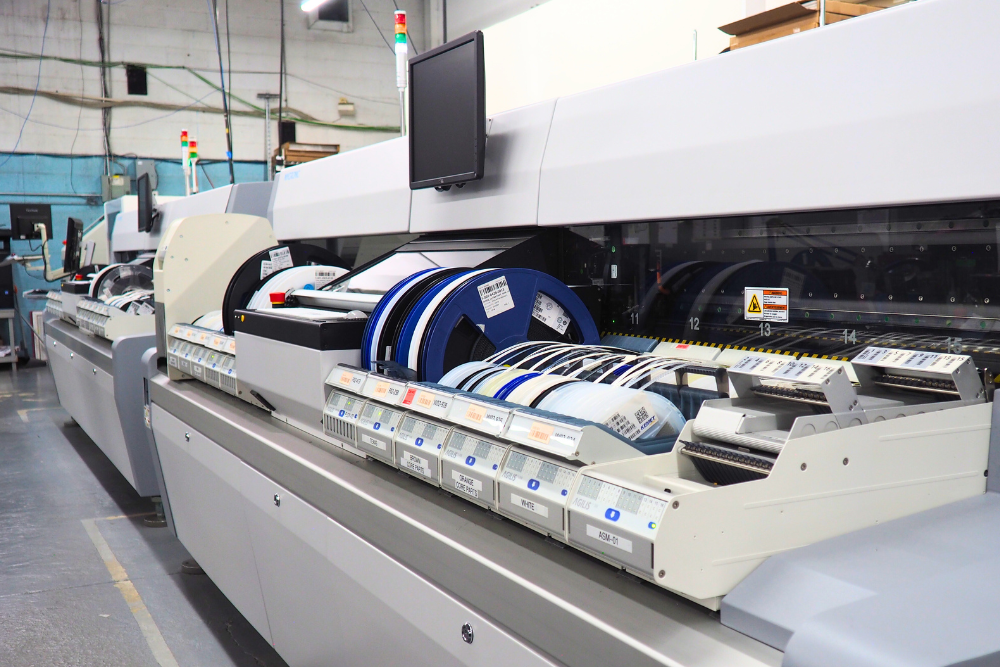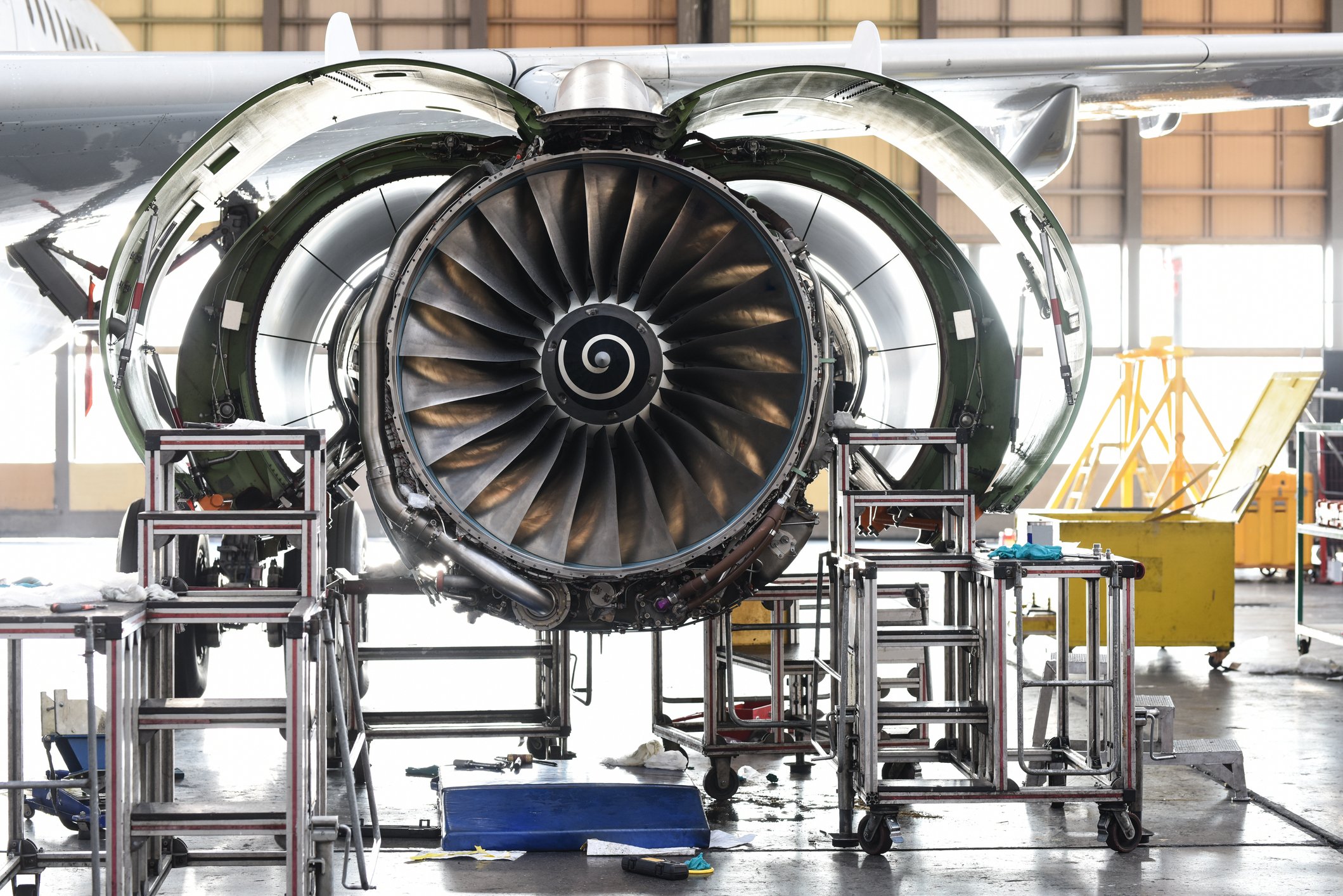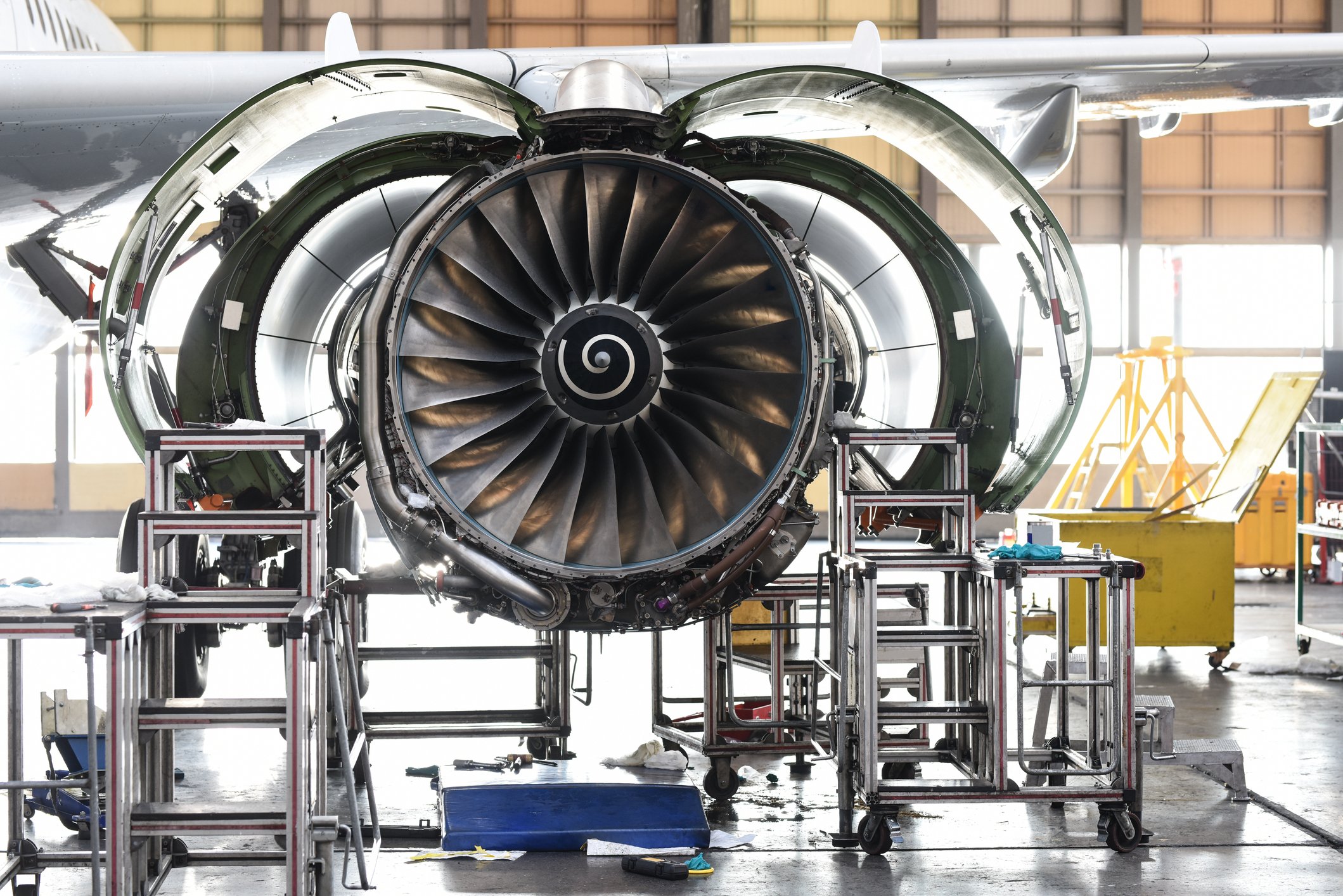TransDigm Group (TDG +1.20%) has long been one of the most reliable performers among aerospace stocks, but over the past year it has had to fly into a number of headwinds that risked slowing the momentum.
TransDigm is a rollup specialist that attempts to provide shareholders with private equity-like returns from a publicly traded entity, doing a lot of deals, taking on a lot of debt, and offering a range of products to a number of different defense and commercial customers.
The model, and the company's aggressive pricing policies, at times lead to questions about sustainability, and a high-profile commercial aircraft grounding threatened to eat into demand for new parts. But in its most recent earnings report, TransDigm did a good job reassuring holders they have nothing to worry about.
A beat over raised expectations
On Feb. 4, TransDigm reported fiscal first quarter adjusted earnings of $4.93 per share on revenue of $1.465 billion, topping expectations for $4.65 per share in earnings on sales of $1.45 billion. Sales were up 47.5% year over year, but much of that was attributable to the company's acquisition of Esterline Technologies. Organic sales growth was 8.7%.

Image source: Getty Images.
The beat was even more impressive than it appears at first glance. TransDigm preannounced some of its quarterly numbers on Jan. 23 in connection with a planned refinancing of some debt. The analyst consensus number prior to the preannouncement was $4.47 per share, so TransDigm beat what was expected just a few weeks ago by more than 10%.
Gross margins dropped 210 basis points year over year, but still registered at a software-like 54%. The fear heading into 2019 was that the acquisition of Esterline -- seen as a "fixer-upper" business -- would saddle TransDigm with debt and destroy its industry-best margins, but the results to date have exceeded expectations.
TransDigm has recouped more than 25% of the purchase price by divesting parts of Esterline it wasn't interested in. And CEO Kevin Stein, on a post-earnings call with investors, said once they got to dive into the company post-deal they were pleasantly surprised with the quality of what they found:
As we've talked about, you get limited due diligence upfront. So we went in, not sure all that we would find. I think in general, we've found that things have been better than we assumed upfront and there hasn't really been yet anything that is bad news, anything that we didn't anticipate or expect. It certainly emboldens us for the future to continue to look at acquisitions like this.
The MAX effect is minor
But perhaps the most important part of TransDigm's earnings release and discussion is what management didn't say. In a quarter dominated by discussion about how the grounding and recent production halt of Boeing's 737 MAX would affect the aerospace supply chain, TransDigm kept its full-year commercial guidance intact.
Commercial aerospace is pivotal to TransDigm, accounting for 70% of its revenue, and if Boeing was manufacturing 737 MAX planes at the rates it had envisioned, that business alone could account for as much as 3% to 4% of TransDigm sales. Management said the range they previously provided in their guidance should account for any 737 MAX variances, although the company is looking at reducing its workforce due to the rate cut.
"We believe any currently anticipated impact from the MAX issues should not have a material impact on our EBITDA for the full fiscal year," Stein said. "We are very diversified across all platforms worldwide so the impact to the 737 MAX or any single program should not be material to TransDigm in the aggregate."
TransDigm is heavily exposed to aftermarket, or spare parts, sales, and actually could see a benefit from the MAX grounding if airlines extend the lives of older airplanes to make up for the lost MAX capacity.
The cash won't sit on the balance sheet
TransDigm has been built through the years based on acquisitions, and as Stein noted in discussing Esterline, the company is coming out of its largest acquisition to date emboldened to seek out new targets. The company expects to have more than $3 billion in cash on hand by the end of its current fiscal year, and perhaps at least $1.5 billion in additional borrowing power, and if history is a guide it will either do a deal or distribute the money to shareholders.
The company does not pay a regular dividend, but routinely declares one-time payouts based on business conditions.
|
TransDigm recent dividend history | |
|---|---|
|
Date paid |
Amount per share |
|
1/7/20 |
$32.50 |
|
8/23/19 |
$30.00 |
|
9/12/17 |
$22.00 |
|
11/1/16 |
$24.00 |
|
6/26/14 |
$25.00 |
Source: TransDigm
Management described the current M&A pipeline as "steady," but mostly small to mid-range bolt-on deals that would add the sort of proprietary and hard-to-manufacture components that are hard to commoditize.
The company is monitoring the commercial market for assets on sale due to the MAX situation, but on the call co-founder and executive chairman Nicholas Howley said "it would surprise me if it had much impact" on the sort of companies TransDigm would consider:
As you know we buy proprietary aerospace stuff with a decent aftermarket. In other words, we buy good businesses. People usually don't sell good businesses in times of temporary down cycle. Now if you told me this was going to drop down like a rock and go on for a long period of time, I'd say that might stress some people. But given the situation that exists today, I'd be surprised if it changes anyone's view.
I expect TransDigm to deploy at least some of its cash firepower on deals, but to also announce a dividend within range of its last payout, if not higher, by late summer.
Steady as she goes
TransDigm has been one of the top performers in the aerospace market over the past decade, and over the past year it has brushed aside concerns, first about the effect of the Esterline deal and more recently about the 737 MAX.
There are still issues for investors to monitor. Defense bookings were down marginally in the quarter, which management attributed to the "lumpy" nature of government sales. But given the ongoing government probe into TransDigm's Pentagon billing practices, it's worth watching in the quarters to come to see if bookings recover the way management expects.
And while TransDigm has done well with the Esterline deal and says it is focused on smaller targets for now, the market would likely not react positively should the company decide to take on another large acquisition in the quarters to come.
TransDigm is currently forecasting full fiscal year sales and earnings growth in excess of 18%, and has a clear path to future growth as it continues to bring the Esterline businesses under its operating system and pursues future additions to the portfolio.
For a while now, TransDigm has been the first stock I'd recommend to an investor seeking exposure to the commercial aerospace market, and nothing in the company's recent report would make me question that recommendation.







